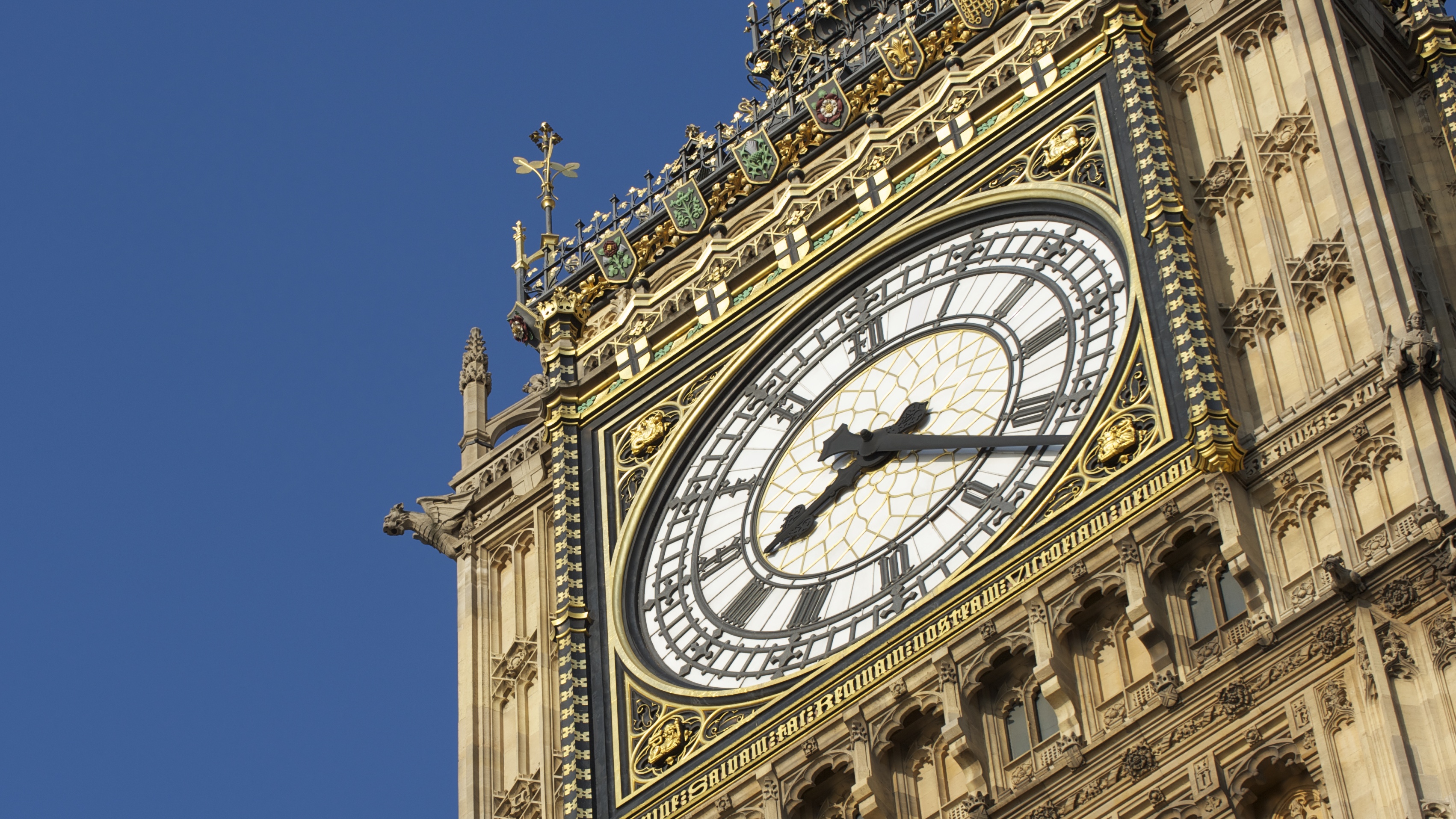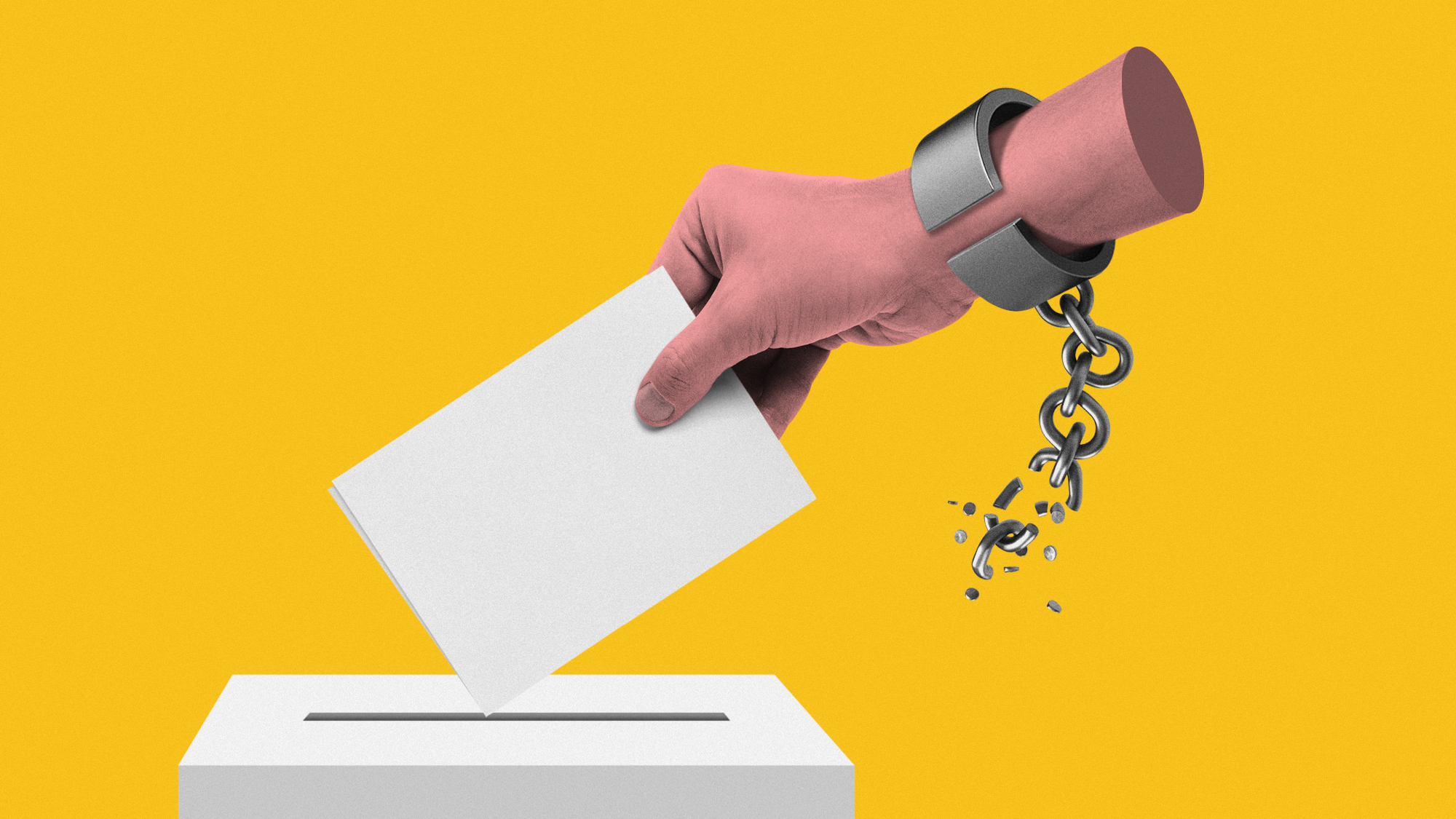How MPs’ pay is decided
Pay increase for parliamentarians comes as millions face tax hikes and rising energy costs

A free daily email with the biggest news stories of the day – and the best features from TheWeek.com
You are now subscribed
Your newsletter sign-up was successful
MPs are set to receive a £2,200 pay rise from next month as millions of Britons face a squeeze on the cost of living.
It means their base salary will rise from £81,932 to £84,144 in order to match last year’s average public sector pay increases, according to the Independent Parliamentary Standards Authority (Ipsa), which sets their pay.
The 2.7% wage increase comes “despite protestations from Boris Johnson and Sir Keir Starmer”, reported The Times. The prime minister has previously urged Ipsa to show “restraint” over MPs’ pay this year, while Starmer has argued that he and his colleagues should not receive a rise.
The Week
Escape your echo chamber. Get the facts behind the news, plus analysis from multiple perspectives.

Sign up for The Week's Free Newsletters
From our morning news briefing to a weekly Good News Newsletter, get the best of The Week delivered directly to your inbox.
From our morning news briefing to a weekly Good News Newsletter, get the best of The Week delivered directly to your inbox.
Backdrop of economic hardship
The pay rise is “nearly half the current rate of inflation”, with the consumer price index expected to hit 7% in April, “effectively meaning they will get a real-terms pay cut”, said The Guardian. But the adjustment will be viewed “against a backdrop of significant economic hardship for many” and after the Bank of England urged workers “not to ask for sizeable pay rises to try to stop prices spiralling out of control”, said the paper.
The expected change is due to come into effect on 1 April, when families across the country will be hit with a 1.25% hike in National Insurance. Energy costs are also set to surge, with the average energy bill expected to rise to almost £2,000 after the price cap was raised by 54% by energy regulator Ofgem.
The increase in MPs’ salaries comes after a £3,300 pay hike was suspended last year due to the “economic impact” of the pandemic, after Ipsa came “under pressure from MPs” to halt the rise, reported ITV. More than 50 parliamentarians wrote to the body calling for pay to be frozen ahead of the proposed 2021 rise.
Who decides MPs’ pay?
MPs’ pay is set independently of both the government and parliament, and is instead set by Ipsa, which was set up in the wake of the 2009 expenses scandal.
A free daily email with the biggest news stories of the day – and the best features from TheWeek.com
Ministers will also receive an extra salary, as do MPs who hold special roles such as the speaker or chairs of committees.
MPs also receive expenses to “cover the costs of running an office, employing staff, having somewhere to live in London or their constituency, and travelling between Parliament and their constituency”, said UK Parliament.
They are allowed to take on outside work to supplement their income, often referred to as second jobs, although the practice is now under “increased scrutiny” following the Owen Paterson lobbying scandal last year, after which Johnson “promised to change the rules to limit the amount of time MPs can dedicate to outside work and ensure they do not work in fields of consultancy linked to parliamentary work”, said The Times.
Should MPs’ wages rise?
MPs across the political spectrum have voiced opposition to the pay increase.
Zarah Sultana, the Labour MP for Coventry South, tweeted that she believed the decision from the regulator to increase pay was “wrong”. She added: “Ordinary people are facing a Tory cost-of-living crisis. They should get a proper pay rise, not well-paid MPs. That’s why I will donate mine to Coventry Foodbank and other local causes.”
A Conservative backbencher told The Guardian they had already given theirs away, while another complained: “Don’t want it, don’t need it, not my decision, now meant to justify it.”
But others voiced support for the move, arguing that MPs can’t have it “both ways” when it comes to setting pay.
“We either want pay set independently or we want MPs to control their own pay. We can’t have it both ways,” an anonymous MP told The Guardian. “We appear to want to run headlong (back) into a world where only wealthy people can afford to be MPs. Ipsa is independent for a reason.”
Richard Lloyd, the chairman of Ipsa, said that the pay increase was the first in two years and “follows the average of increases across the public sector last year”.
“MPs play a vital role in our democracy and this is reflected in their pay,” he said.
“It is right that MPs are paid fairly for the responsibility and the unseen work they do helping their constituents, which dramatically increased last year.
“For Parliament to reflect society, it is vital that people from all walks of life can be an MP.”
-
 Political cartoons for February 12
Political cartoons for February 12Cartoons Thursday's political cartoons include a Pam Bondi performance, Ghislaine Maxwell on tour, and ICE detention facilities
-
 Arcadia: Tom Stoppard’s ‘masterpiece’ makes a ‘triumphant’ return
Arcadia: Tom Stoppard’s ‘masterpiece’ makes a ‘triumphant’ returnThe Week Recommends Carrie Cracknell’s revival at the Old Vic ‘grips like a thriller’
-
 My Father’s Shadow: a ‘magically nimble’ film
My Father’s Shadow: a ‘magically nimble’ filmThe Week Recommends Akinola Davies Jr’s touching and ‘tender’ tale of two brothers in 1990s Nigeria
-
 How corrupt is the UK?
How corrupt is the UK?The Explainer Decline in standards ‘risks becoming a defining feature of our political culture’ as Britain falls to lowest ever score on global index
-
 The Mandelson files: Labour Svengali’s parting gift to Starmer
The Mandelson files: Labour Svengali’s parting gift to StarmerThe Explainer Texts and emails about Mandelson’s appointment as US ambassador could fuel biggest political scandal ‘for a generation’
-
 The high street: Britain’s next political battleground?
The high street: Britain’s next political battleground?In the Spotlight Mass closure of shops and influx of organised crime are fuelling voter anger, and offer an opening for Reform UK
-
 Is a Reform-Tory pact becoming more likely?
Is a Reform-Tory pact becoming more likely?Today’s Big Question Nigel Farage’s party is ahead in the polls but still falls well short of a Commons majority, while Conservatives are still losing MPs to Reform
-
 Taking the low road: why the SNP is still standing strong
Taking the low road: why the SNP is still standing strongTalking Point Party is on track for a fifth consecutive victory in May’s Holyrood election, despite controversies and plummeting support
-
 What difference will the 'historic' UK-Germany treaty make?
What difference will the 'historic' UK-Germany treaty make?Today's Big Question Europe's two biggest economies sign first treaty since WWII, underscoring 'triangle alliance' with France amid growing Russian threat and US distance
-
 Are free votes the best way to change British society?
Are free votes the best way to change British society?Today's Big Question On 'conscience issues' like abortion and assisted dying, MPs are being left to make the most consequential social decisions without guidance
-
 Is the G7 still relevant?
Is the G7 still relevant?Talking Point Donald Trump's early departure cast a shadow over this week's meeting of the world's major democracies